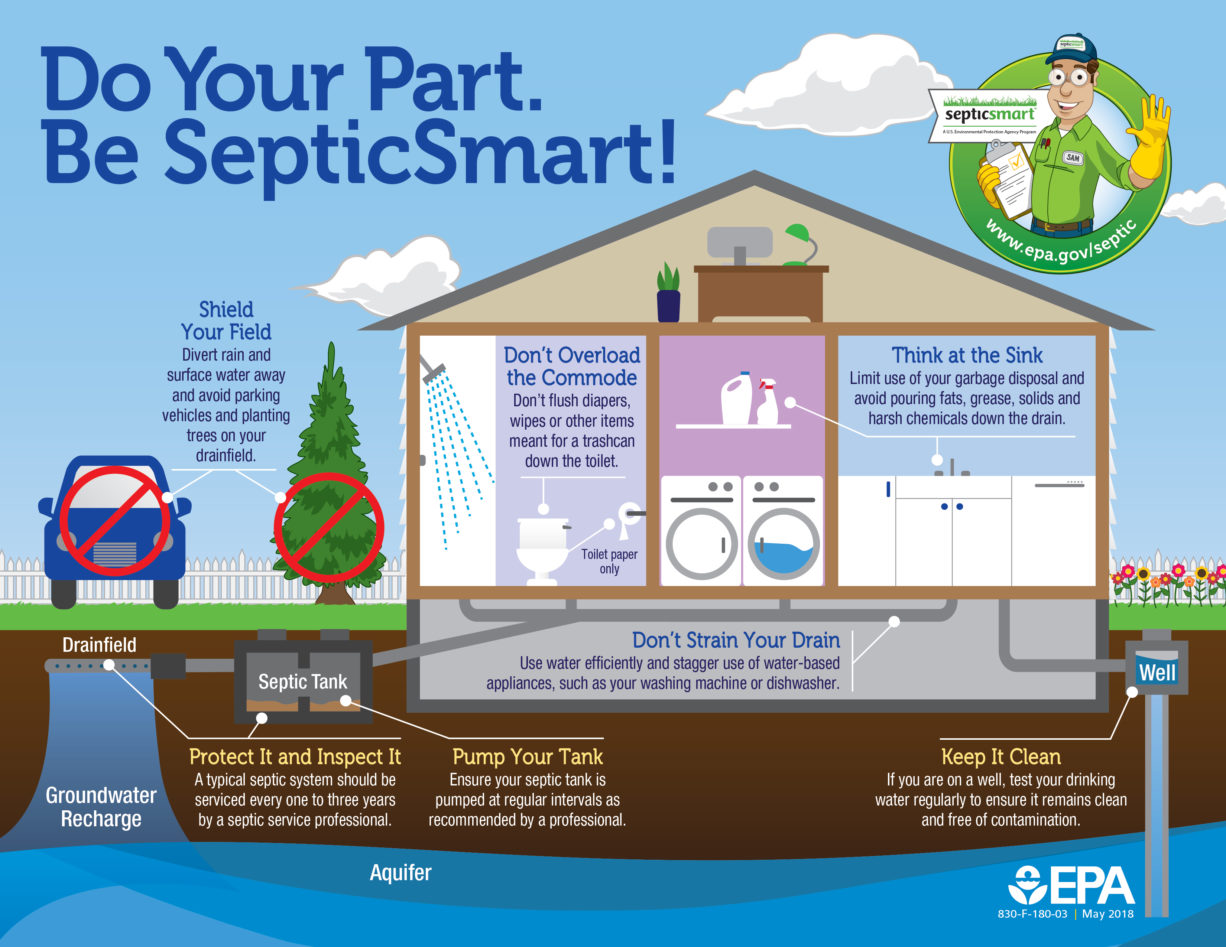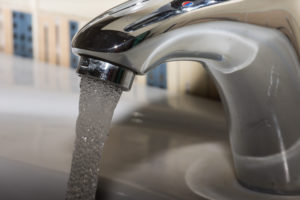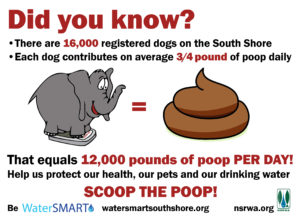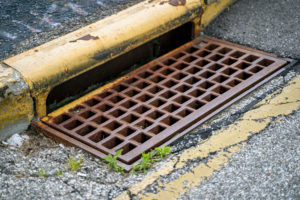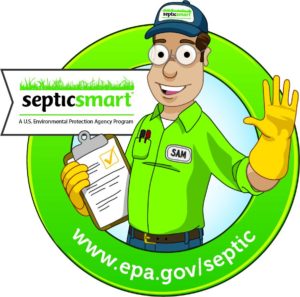 Be a SepticSmart Homeowner
Be a SepticSmart Homeowner
SepticSmart is a program sponsored by the EPA to encourage homeowners to maintain effective septic systems to protect public health and preserve our valuable water resources.
Here are some tips to help you care for your septic system and to be SepticSmart:
- Have your system inspected every three years by a qualified professional or according to your state/ local health department’s recommendations
- Have your septic tank pumped, when necessary, generally every three to five years
- Avoid pouring harsh products (e.g., oils, grease, chemicals, paint, medications) down the drain
- Discard non-degradable products in the trash (e.g., floss, disposable wipes, cat litter) instead of flushing them
- Keep cars and heavy vehicles parked away from the drainfield and tank
- Follow the system manufacturer’s directions when using septic tank cleaners and additives
- Repair leaks and use water efficient fixtures to avoid overloading the system
- Maintain plants and vegetation near the system to ensure roots do not block drains
- Use soaps and detergents that are low-suds, biodegradable, and low- or phosphate-free
- Prevent system freezing during cold weather by inspecting and insulating vulnerable system parts (e.g., the inspection pipe and soil treatment area)
Pump it!
Do you know your septic tank should be pumped every 3 to 5 years?
Wastewater is one of those things we take for granted…it’s out of sight out of mind. However, wastewater from septic systems is a leading environmental and public safety concern.
If pollutants from untreated septic systems permeate our waters, native plants and fish are likely to be killed off, upsetting the balance of the local ecosystem. Healthy septic systems help preserve a healthy environment for everyone on the South Shore.
If you’re not connected to a centralized town sewer system, you probably have a septic system. A septic system is an underground treatment structure in your yard used to store everything that goes down your drains in the bathroom, kitchen, and laundry room. Living organisms digest the waste in the tank, keeping down the amount of waste accumulating in the tank. If your septic system isn’t pumped regularly and or treated properly, diseases such as hepatitis and gastrointestinal illness can spread, posing a risk to our drinking water. What’s more, an untreated septic system could ultimately cause you financial and legal troubles, and decrease your property value.
The cost of regular septic system maintenance is roughly $250 to $500 per service visit–much cheaper than having to replace or repair a broken system, which can cost anywhere from $3,000 to $5,000.
What else can I do to be SepticSmart?
- Keep a record of your septic system maintenance.
- Minimize the amount of water you waste by investing in high-efficiency toilets, washing machines, and showerheads.
- Wash laundry in full loads and don’t do several loads in one day. This could flood your system.
- Only flush human waste and toilet paper. Feminine hygiene products and wipes of any kind should never be flushed, as they are hazardous to your toilets’ draining system!
- Never pour toxins, such as chemical drain openers, into your drains or toilets. These can kill the organisms in your tank and ruin your system.
For more information on septic systems and their maintenance, visit the EPA’s website.
WaterSmart is a nonprofit partnership between the NSRWA and 12 towns on the South Shore: Cohasset, Duxbury, Hanover, Hingham, Hull, Kingston, Marshfield, Norwell, Pembroke, Rockland, Scituate and Weymouth. Our programs are based on the belief that education is key. Since its creation, WaterSmart has educated thousands of local school-age children, adults, and businesses on water conservation, stormwater pollution, where their water comes from, and how to care for it.

- Dumpster Maintenance and Waste Materials
- Gardening Green Expo 2025
- Greenscapes
- How to Build a Rain Garden
- Indoor Water Conservation
- Low Impact Development
- Parking Lot Maintenance
- Pet Waste Education
- Plant a Monarch Garden
- Rain Barrel and Composter Sale
- School Programs
- Septic Systems
- Sign Our Water For People Not Lawns Pledge
- Stormwater
- Water Conservation Tips
- Watersmart Business

